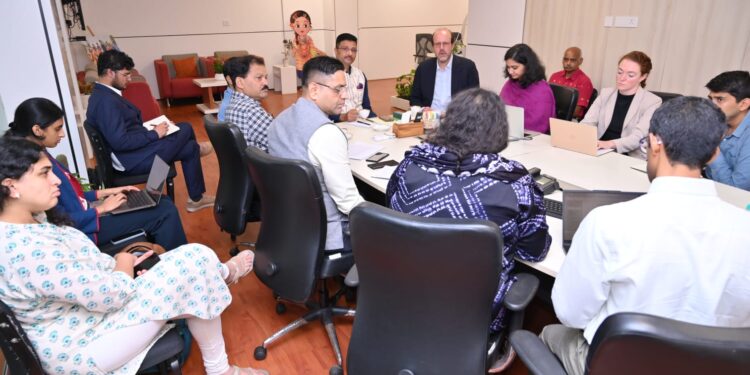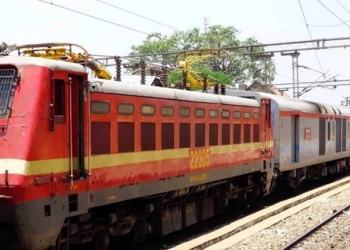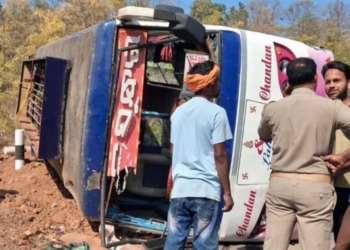Nobel Laureate Prof. Michael Kremer, accompanied by a 12-member team from the University of Chicago, visited Krushi Bhavan in Bhubaneswar to explore Odisha’s groundbreaking weather forecast dissemination system.
The visit focused on evaluating the system’s rationality, validity, and acceptance among the state’s farming community, as part of an ongoing research project.
During a high-level meeting at Krushi Bhavan, chaired by Dr. Arabinda Kumar Padhee, Principal Secretary of Agriculture and Farmers’ Empowerment (A&FE) Department, Prof. Kremer praised the Krushi Samrudhi Helpline (KSH). He highlighted its critical role in empowering farmers to protect crops from climate-related challenges, ensuring last-mile outreach.
Prof. Kremer proposed integrating Artificial Intelligence (AI)-based forecasting—factoring in rainfall, temperature, and humidity—to enhance pest incidence predictions, enabling farmers to take preventive measures against erratic weather patterns. He also emphasised the need to combine multiple weather forecasting models with the existing KSH framework to strengthen its impact.
Dr. Padhee showcased the department’s comprehensive initiatives, including the Krushak Odisha database, digital crop surveys, farmer registry, crop insurance, and Comprehensive Rice Fallow Management to improve soil health. He also highlighted the adoption of stress-tolerant crop varieties, digital pest monitoring, and a contingency plan developed with Odisha University of Agriculture and Technology (OUAT) to address weather aberrations.
Prof. Kremer commended Odisha’s holistic approach to agricultural resilience and expressed enthusiasm for a collaborative partnership to share knowledge and expertise. The meeting saw participation from key officials, including Mr. Shubham Saxena, Director of Agriculture and Food Production; Mr. Subrat Kumar Panda, Director of Soil Conservation and Watershed Development; senior departmental officers; OUAT scientists; and members of the Climate Resilience Cell (CRC).
Odisha’s innovative agricultural model, blending technology and farmer-centric solutions, has positioned the state as a global exemplar in climate-resilient farming.






























